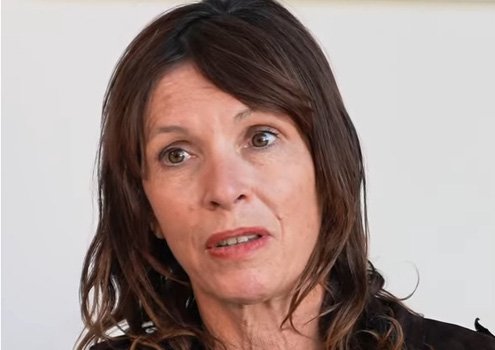Reading time: Just over 2 minutes
I like to share interesting pieces of figurative language I encounter in my reading. I write today about a series of metaphors and similes from writer Rachel Cusk….
Rachel Cusk is not much interested in plot. Or characters. Her widely praised 2014 novel Outline — the first in a trilogy — occupies a liminal space in which the protagonist simply listens to the thoughts of other people.
I must confess, I found the absence of plot to be both frustrating and boring but her writing never disappoints. Here are my favourite examples of her figurative language from Outline:
- He chewed and spat out whatever tough relic of goat or macaroni the Italian housewife had thrown from the balcony— goat and macaroni were raucous smells, crimson smells.
- The air hostess stood in the aisle and mimed with her props as the recording played. We were strapped into our seats, a field of strangers, in a silence like the silence of a congregation while the liturgy is read.
- Outside the turgid summer afternoon lay stalled over the runway; little airport vehicles raced unconstrained across the flat distances, skating and turning and circling like toys, and further away still was the silver thread of the motorway that ran and glinted like a brook bounded by the monotonous fields.
- He raised his eyebrows, which were silver and grew unexpectedly coarsely and wildly from his forehead, like grasses in a rocky place.
- He spoke a reined and formal kind of English that did not seem wholly natural, as though at some point it had been applied to him carefully with a brush, like paint.
- He began to see Dublin as he used to see it in his mind’s eye as a schoolboy, with scholars on bicycles sailing like dark swans through the streets in their black robes.
- What located me was his extraordinary beak-like nose with the prominent brow jutting out above it, which gave him the slightly quizzical appearance of a seabird, crowned with his plume of silver-white hair.
- The family [on a boat — viewed from another boat] immediately began to stir, changing their positions in the confined space as though they were little clockwork figures rotating on a jewellery box.
- There was no direct road between the two places, just a rambling network of country lanes that looked on a map like the tangled illustrations of veins and capillaries in a textbook, so that it made no particular difference which way you went as long as it was generally in the right direction.
- Everything about it [the man’s face] is exaggerated, the cheeks very gaunt, the forehead very high, the eyebrows winging off like exclamation marks…
- His eyes, within this rictus-like expression, are very mobile and changeable and often bulge dramatically forward, as though one day they might fly out of his face altogether with astonishment at what they have witnessed.
- A conversation of inexplicable length ensued, in the course of which the two of them went outside and shortly after came back again, whereupon it continued more energetically than ever, the woman’s tawny well-cut hair swishing with the rapid movements of her head and her lovely grey dress — made of flimsy silk material — swirling as the shifted from one foot to another, impatient as a stamping pony.
- He held up the spoon and asked Angeliki whether she wouldn’t take a little more, but she half closed her eyes and inclined her head in reply, like a saint patiently refusing temptation.
- The dog was a very pretty animal we called Mimi with a curly tobacco-coloured coat and eyes like two chocolates.
- She was an attenuated, whey-faced, corkscrew-haired person somewhere in her forties, with an unusually long neck and a rather small head, like that of a goose.
An earlier version of this post first appeared on my blog on Aug. 15/19.
[Photo credit: librairie mollat. Cropped. Licensed under the Creative Commons Attribution 3.0 Unported license.]


